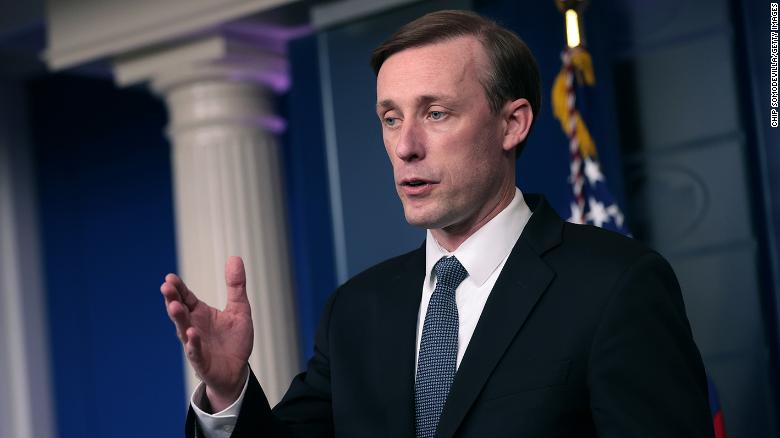While US officials have made note that China has been abiding by the sanctions the US and its allies have imposed against Russia, Biden said recently he was not prepared to discuss his efforts to pressure China to help isolate Russia over the Kremlin’s bloody war.
“I’m not prepared to comment on that at the moment,” Biden told reporters at the White House in February.
Biden has often talked about his conversations with Xi, frequently recalling the dozens of hours the two leaders spent with each other when they were serving as their country’s vice presidents. In his speeches, Biden often likes to recall dining with Xi on the Tibetan Plateau and describing the United States in one word: “possibilities.”
During the face-to-face meeting in Rome, Sullivan and Yang will also discuss issues that Biden and Xi went over during their virtual call last year, sources familiar with the matter say. The sources added that this meeting has been in the works for some time, and they don’t expect any concrete outcomes from it.
Since taking office, Biden has stressed he believes the US is at an inflection point in its history and must show the world democracies can compete with autocratic regimes like China’s.
“To compete for the best jobs of the future, we also need to level the playing field with China and other competitors,” Biden said at his first State of the Union address earlier this month.
During the three-hour summit with
coach outlet his Chinese counterpart roughly four months ago, Biden raised concerns about human rights, Chinese aggression toward Taiwan and trade issues. The Biden administration has been clear managing competition with China is a long-term national security and economic priority of the United States.
“How the United States, Europe, and Asia work together to secure the peace and defend our shared values and advance our prosperity across the Pacific will be among the most consequential efforts we undertake,” Biden said at the Munich security conference last year.
While in Rome, Sullivan is also expected to meet with Luigi Mattiolo, diplomatic adviser to the Italian Prime Minister; the two men will discuss ongoing efforts to respond to the Kremlin’s invasion of Ukraine, according to Horne’s statement.
Nuclear escalation threat
Meanwhile, Sullivan told CNN on Sunday that while the Biden administration is “concerned about the possibility of escalation,” with respect to Putin’s nuclear posture, “we have not seen anything that would require us to change our nuclear posture at this time.”
“We are watching this extremely closely, and obviously, the escalation risk with a nuclear power is severe, and it is a different kind of conflict than other conflicts the American people have seen over the years,” he said on “State of the Union.”
Still, Sullivan stood by the administration’s decision to reject a Polish offer to transfer fighter jets to Ukraine through the United States and a German air base.
“The President listened to the assessment of his intelligence community, he listened to the advice of his military commanders, he consulted his NATO allies, and he ultimately determined that the risk-benefit analysis of flying planes from NATO bases into contested airspace over Ukraine did not make sense, was not something that he would authorize,” he said, adding the US is focused on providing “other anti-air systems that could help the Ukrainians make progress in terms of dealing with the threat that is coming from the air from the Russian side.”
The national security adviser also reiterated comments from Biden earlier this week that Russia “would pay a severe price” if they chose to use chemical or biological weapons in Ukraine, adding that Russia’s accusations against Ukraine preparing to deploy chemical weapons “is a tell, a tell that they themselves may be preparing to do so and then trying to pin the blame on someone else– that’s a classic page out of the Russian playbook.”


+ There are no comments
Add yours